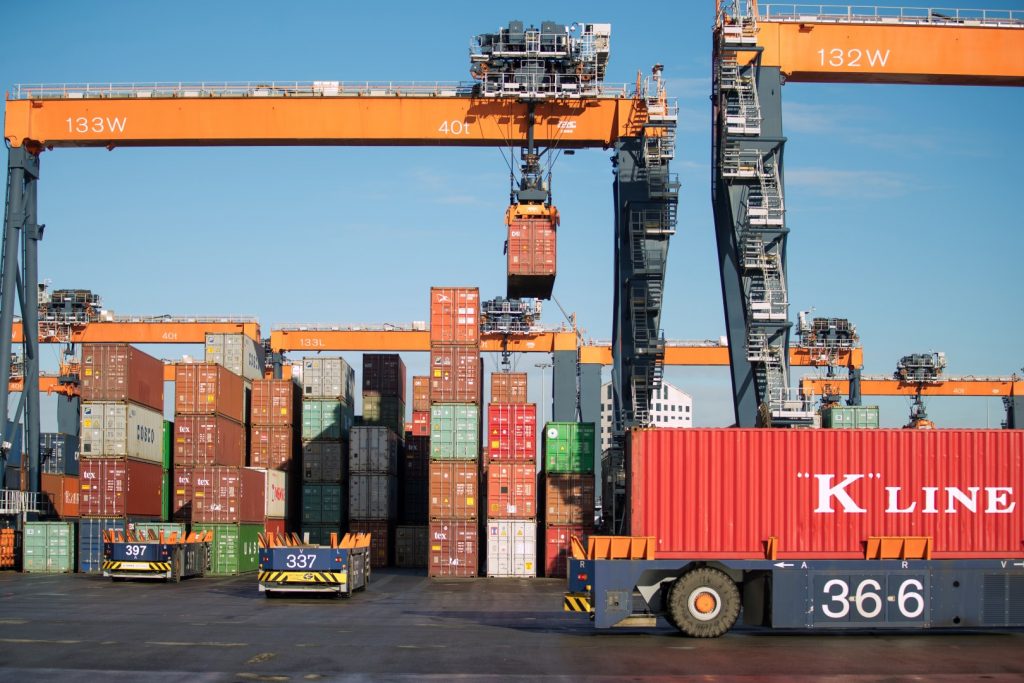You can also listen to this podcast on iono.fm here.
SIMON BROWN: I’m chatting with Earle Peters, Transnet Port Terminals managing executive overseeing Durban Terminals. Earle, I appreciate the time. Data coming through that in the last financial year you’ve had one of the best in the last 10 in terms of agribulk through Durban terminals.
EARLE PETERS: That is correct, Simon. Our 2022/2023 financial year. And that essentially is the period April to March. We saw that we handled more than a million tons of agricultural bulk products. So in relation to what that means, it’s 35% above the target that we set for the year, which essentially was our budget. The last time we saw these types of numbers when we handled maize, wheat or soybeans and wood chips was approximately 10 years ago, when the terminal actually recorded more than a million tons. That was in 2012/2013. So great opportunities, a great rebound [coming] through for us in the Durban Agriport Terminal.
SIMON BROWN: Is this [from] customers sending more through the port, or have you upgraded and improved facilities at the port?
EARLE PETERS: The narrative for the success story behind all of this can be attributed to efficiency improvements on our side. Also uptime of equipment. We’ve done a lot of work around the reliability of equipment, [and] introduced engineers. We’ve also strengthened our supply chain and partnerships with the equipment manufacturers that maintain this equipment.
Second to this we’ve also invested in new ship unloaders. Essentially this is for all the wheat products coming in that we’ve invested in. What that has at least allowed us to do is there have been during the last, I would say, two to three years, great crops produced in South Africa which allowed for the surplus to leave the shores.
And obviously the Russia/Ukraine conflict has definitely provided the opportunity. Unfortunately not a good story, but it allowed us to export more maize globally.
SIMON BROWN: Were you impacted by the floods of April last year? Obviously the broader community was; obviously a lot of your customers were. Was the agribulk impacted by those floods?
EARLE PETERS: Fortunately not, Simon. We were not impacted by the floods, not at the bulk facility. However, there are various modes or modalities that grain is being brought to the terminal in the port of Durban. So it’s a combination of road and rail. What we have seen is that rail unfortunately had to be suspended because railway lines washed away. However, the modality, which was road in essence, allowed us to continue with imports and exports.
SIMON BROWN: [In regard to] the million tons that have gone through this year – as a complete novice although someone who’s lived in Durban, I’ve seen the ships out in the harbour and out in the bay – how many ships is that coming through the port over the course of the year?
EARLE PETERS: On our side approximately 35 [ships] per month.
SIMON BROWN: Per month. Okay. That is just over one a day. And where does the cargo come from? Obviously some of it is KZN, and I’m thinking wood chips and the like. But I imagine there must be some other inland provinces also shipping out of Durban.
EARLE PETERS: Yes, absolutely. It’s more the maize that is coming upstream, coming from the Kroonstad area. That’s [from] where most of it is actually coming down to the terminal. That’s where the maize hub is, the grains hub. It’s essentially Mpumalanga and the Eastern Cape.
SIMON BROWN: Mpumalanga and some of the Eastern Cape. Then obviously a strong year.
Expectations for the year ahead? You mentioned that some of the benefit was from good crops. Those might weaken a little bit, but you’re expecting another, if not record, sort of close to record [year].
EARLE PETERS: Most definitely, Simon. I would say we do expect that. We are definitely ready. Our facility is definitely ready to do more exports. What we’ve done to ensure that we streamline this is that we’ve also aligned the export and the import cycles for the business. It just makes it so much easier on the value chain. Other than that, it does create a bit of a challenge logistically, and this made it much easier.
What we’ve also done, Simon, is that we’ve become a member of the South African Cereals and Oilseeds Trading Association, which really gave us that visibility to work closer with industry and capitalise on opportunities.
SIMON BROWN: I get your point. And the imports in particular. Of course the ships often aren’t coming in. They are agri ships. Is this importing agriculture that then gets offloaded on some ship site, or are they importing other products or commodities?
EARLE PETERS: These are bulk vessels, Simon, by and large, and I would say 99% is imported wheat. We are net importer of wheat. That is product coming in, particularly the product that comes through the port of Durban. We are the main hub for South Africa for wheat Imports.
SIMON BROWN: We’ll leave it there. Earle Peters, Transnet Port Terminals managing executive overseeing Durban Terminals, I really appreciate the time.
Listen to the full MoneywebNOW podcast every weekday morning here

